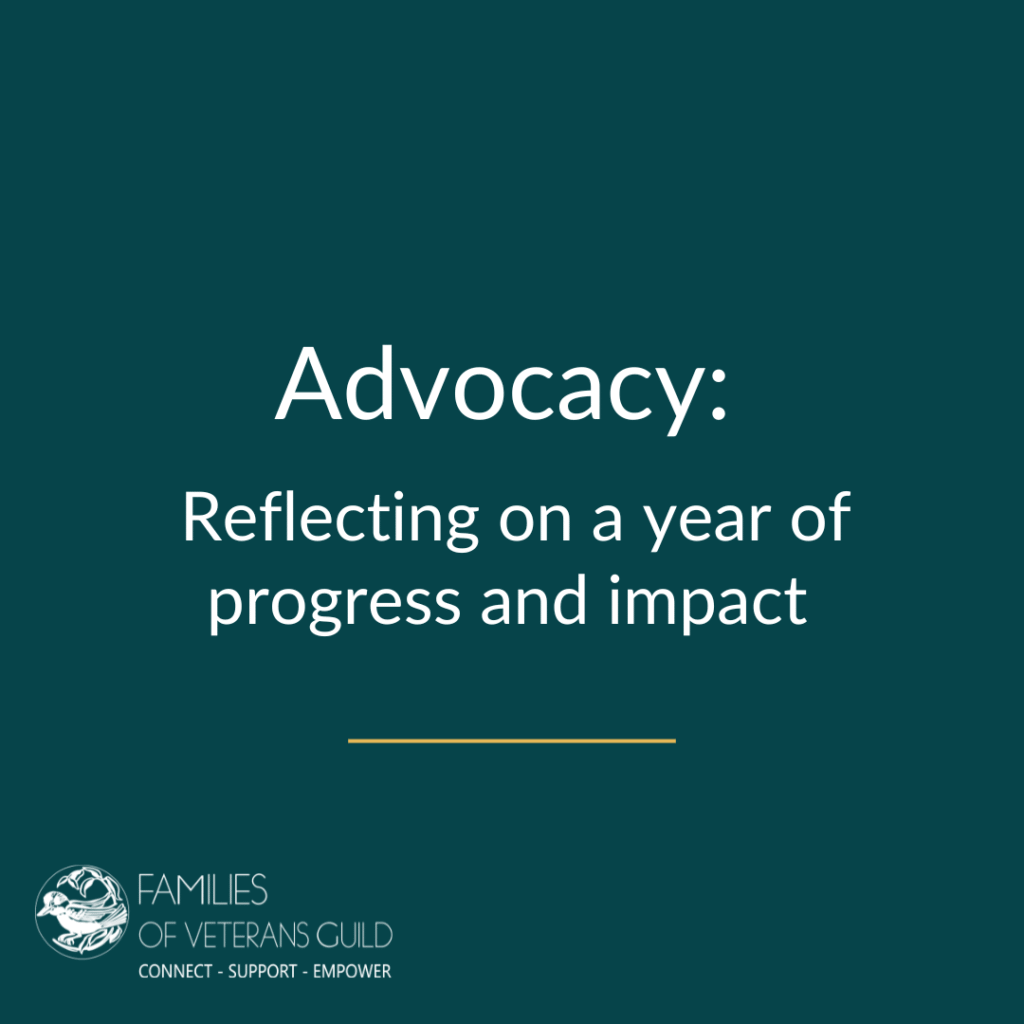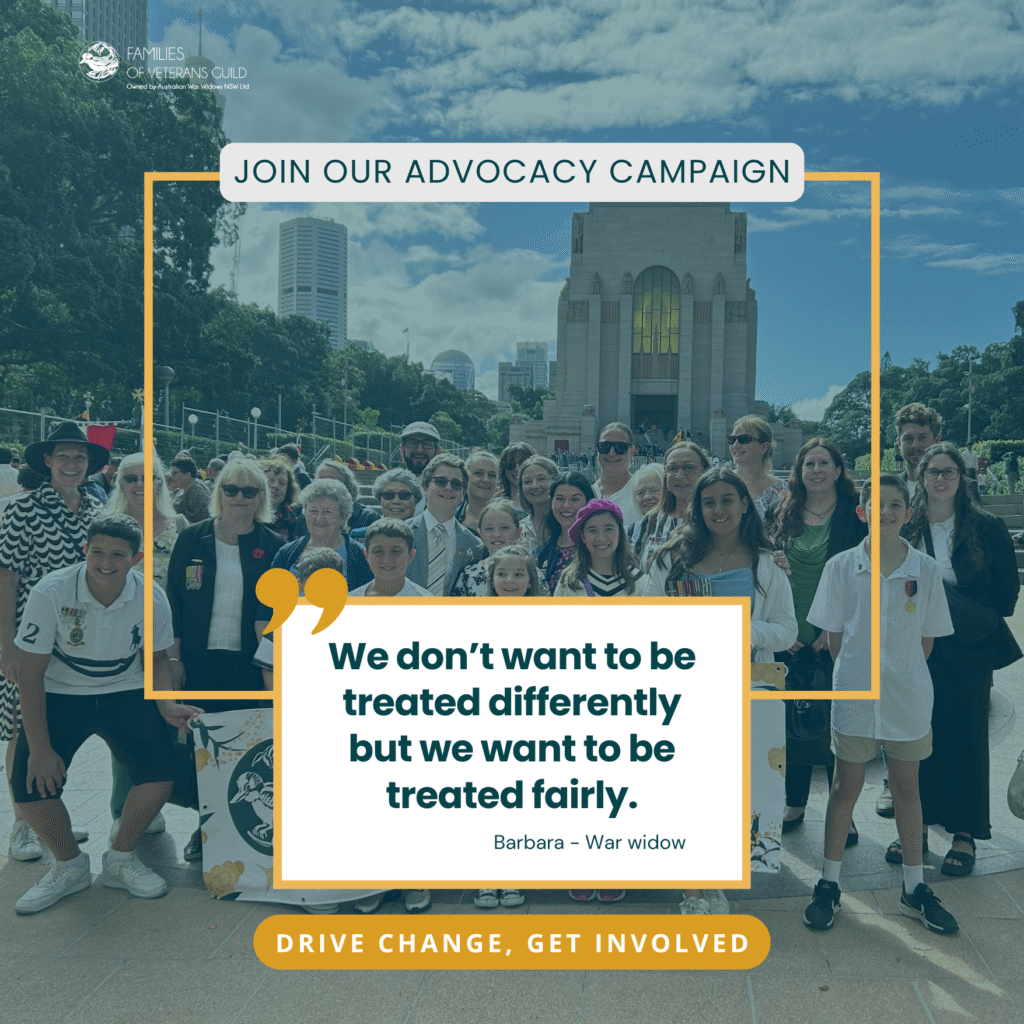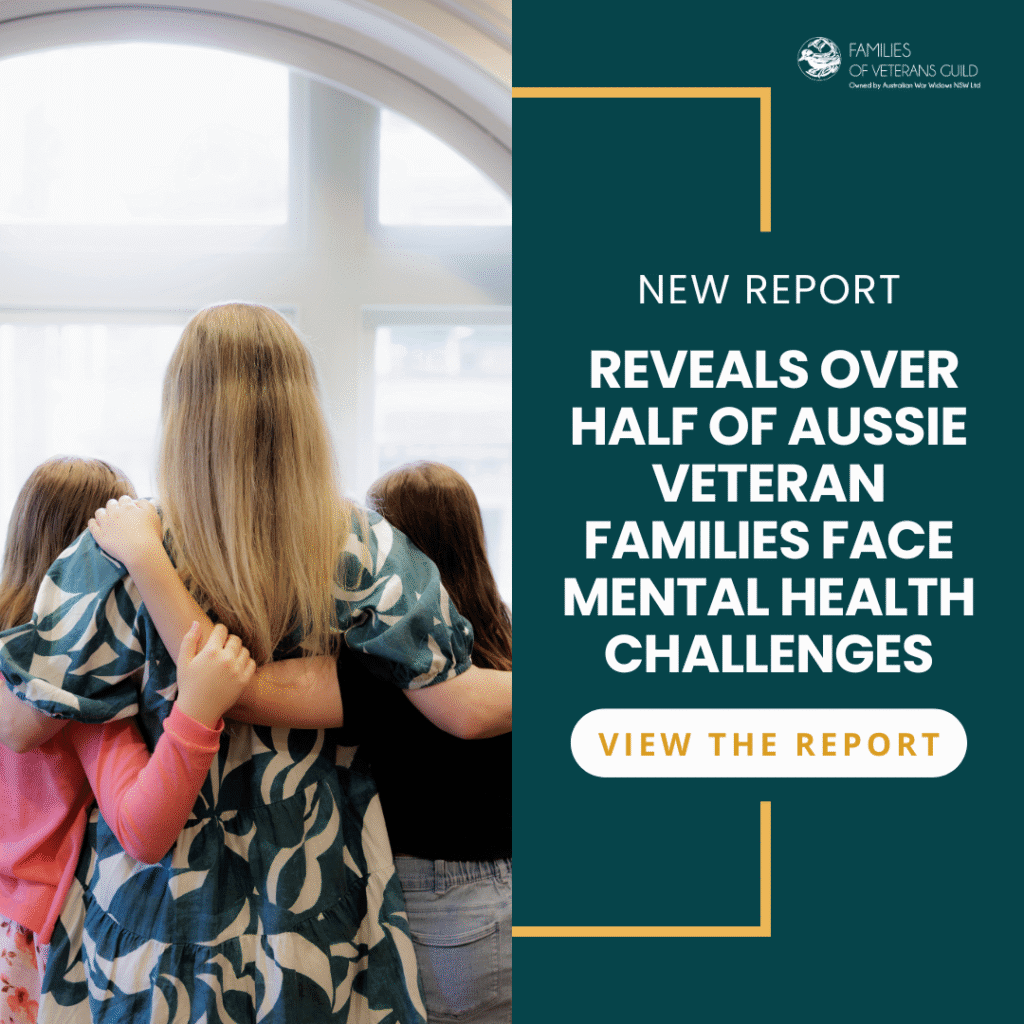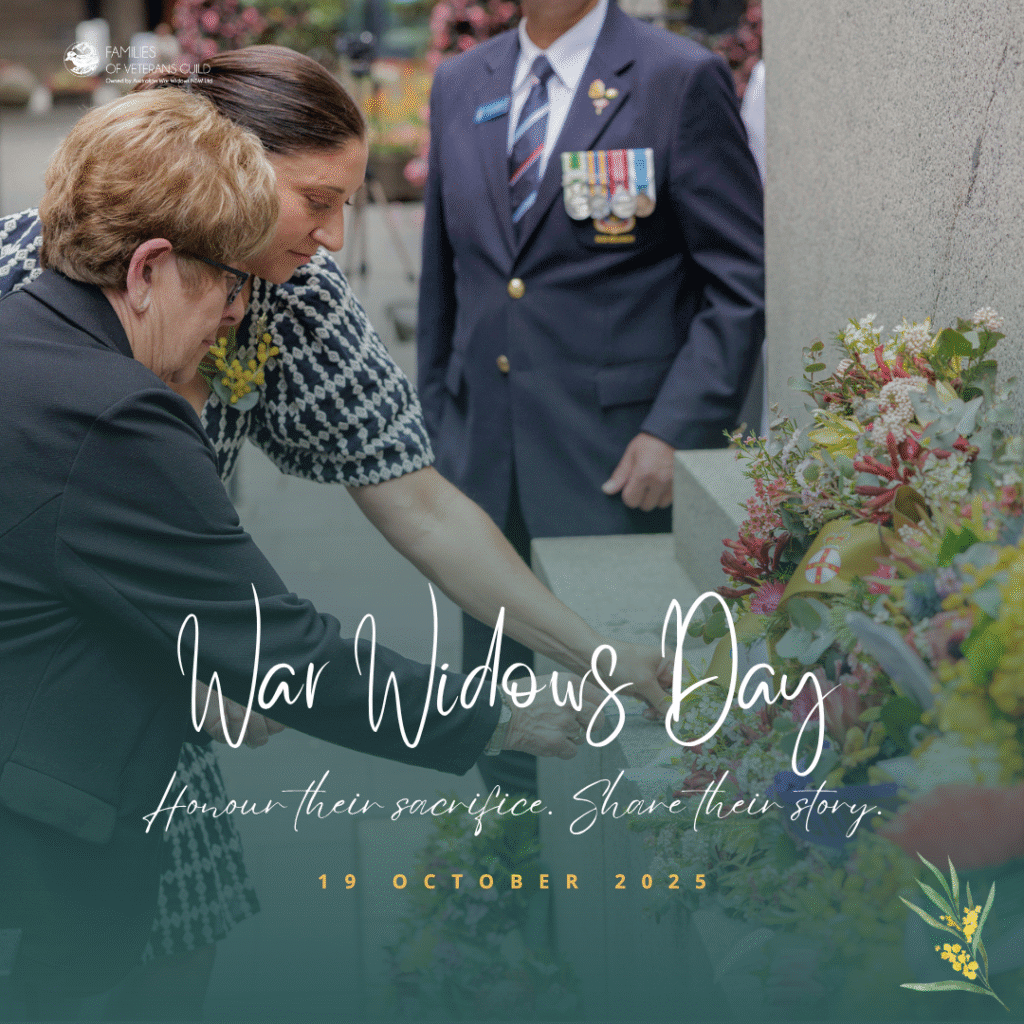Over the last 12 months advocacy work has continued to grow as the organisation recommenced Government Relations work, building relationships across all sides of politics to increase the voices and draw attention to the needs of veteran families. Over the course of the year, 33 government relations products were produced including letters, meetings, and presentations, representing the views and interests of war widows and veteran families to Federal and State Governments.
Putting families on the government’s agenda
From submissions to the Senate to meetings with MPs across the chamber, an important achievement throughout the last year was putting the voices, experiences and needs of war widows and families of veterans front and centre.
Throughout the last 12 months key work included making five submissions to federal government inquiries and preparing a detailed response to the Defence and Veteran Family Wellbeing Strategy. We put on the need to change terminology within the new Veterans’ Act on the agenda, and we ensured the veteran community gets to have a say in the legislation that establishes the Defence and Veterans Suicide Commission.
We raise, through state forums, issues relating to the needs and entitlements of war widows under Gold Card arrangements, urging DVA to keep pace with changing needs and demographics. We continue to highlight gaps in support for the children of veterans and advocate for systemic change.
Defence service has consequences for families of veterans
We have consolidated existing data and compared it to the general population. This data tells us that defending Australia has real and clear consequences for families.
- Veteran families are 25% more likely to experience suicidal ideation.
- Children of veterans are 9% more likely to experience childhood distress.
- Parents and partners of veterans are 14% more likely to experience psychological distress.
- Veteran families are 21% more likely to experience financial hardship.
- Partners of veterans are 42% more likely to experience emotional Intimate Partner Violence (IPV) and 8% more likely to experience physical IPV.
- 90% of civilian defence partners have made employment sacrifices due to their partners’ defence service.
- Female civilian defence partners of all ages were more likely to be unemployed than women in the broader Australian population.
We know that current support systems do not meet their needs. Our work in supporting families has just started.




